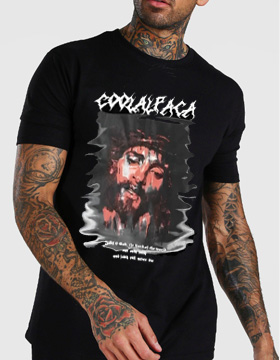What is Cotton-Polyester? Differences Between Cotton-Polyester and Polyester-Cotton
What is Cotton-Polyester? Differences Between Cotton-Polyester and Polyester-Cotton
Leading Paragraph:
In the textile industry, understanding the differences between various fabric blends is crucial. The confusion between cotton-polyester and polyester-cotton blends often leads to selecting the wrong material for specific needs. In this article, we'll clear up the confusion and help you choose the right fabric for your projects.



Snippet Answer Paragraph:
Cotton-polyester and polyester-cotton blends differ primarily in their composition and properties. Cotton-polyester typically contains more cotton, making it softer and more breathable, while polyester-cotton has a higher polyester content, providing greater durability and resistance to wrinkles and shrinking. Understanding these differences can help you make informed decisions for your textile needs.
Transitional Paragraph:
Now, let’s dive deeper into the specifics of each blend and answer some common questions.
Subheadings:
Which is better, polyester or polyester cotton?
Cotton and polyester are often blended together to produce fabrics that combine the best qualities of both. Polyester is more durable and resistant to wrinkles and shrinking, but cotton is more skin-friendly and breathable. The choice depends on the intended use of the fabric.
What's better, polycotton or 100% cotton?
If you are looking for a material for everyday wear, cotton is a better choice due to its comfort, breathability, and durability. It is also environmentally friendly and biodegradable. However, for sportswear or workwear, polycotton is more suitable because it combines the benefits of both fibers, offering durability and ease of care.
Which cotton polyester blend is best?
A 65% cotton / 35% polyester blend is often recommended for casual wear as it is less likely to shrink compared to pure cotton and offers a good balance of comfort and durability. This blend is popular for making workwear due to its cost-effectiveness and tear resistance.
What is the name of 50 cotton 50 polyester fabric?
This blend is commonly referred to as cotton/poly or 50/50. CVC (Chief Value Cotton) is another name for a similar blend, typically 60% cotton and 40% polyester. Tri-Blend fabrics combine cotton, polyester, and rayon for a unique texture and comfort.
What is the best cotton polyester blend?
The best blend depends on the intended use. For general wear, a 65% cotton / 35% polyester blend is popular. For workwear, a blend with more polyester, such as 50/50, offers durability and wrinkle resistance.
Polyester vs cotton in summer?
Cotton is generally better for summer due to its breathability and moisture-absorbing properties. Polyester, while durable, does not breathe as well and can trap heat, making it less comfortable in hot weather.
Polyester or cotton, which is better?
This depends on the context. Cotton is better for comfort and breathability, while polyester excels in durability, wrinkle resistance, and moisture-wicking. Each fabric has its own strengths and is suited for different purposes.
Polyester vs cotton price?
Polyester is typically less expensive to produce than cotton, which can affect the price of the final product. However, the quality and specific blend will also influence the cost.
Difference between polyester and cotton thread?
Polyester thread is stronger, more elastic, and more resistant to abrasion and shrinkage than cotton thread. Cotton thread is softer and more heat-resistant, making it ideal for applications where durability is less of a concern.
Polyester vs cotton t-shirt?
Cotton t-shirts are known for their comfort, softness, and breathability. Polyester t-shirts are durable, quick-drying, and better at wicking moisture away from the skin, making them ideal for athletic wear.
60% cotton 40% polyester?
This blend offers a good balance of comfort and durability, making it a popular choice for many types of clothing, including t-shirts and uniforms. It combines the softness and breathability of cotton with the strength and wrinkle resistance of polyester.
Polyester vs cotton in winter?
In winter, polyester is often preferred for its insulation properties and ability to wick moisture away from the body. Cotton, while comfortable, can retain moisture and lose its insulating properties when wet, making it less ideal for cold weather.



Summary:
Understanding the differences between cotton-polyester and polyester-cotton blends can greatly impact your fabric choices for various applications. For comfort and breathability, cotton-rich blends are preferable, while polyester-rich blends offer durability and wrinkle resistance. Choose the right blend based on your specific needs to ensure the best performance and satisfaction.


